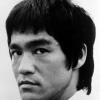We now have several reports of increased strength manifested in more reps with greater weight, occuring very shortly after beginning C60 supplementation.
A putative mechanism of C60 action is improving mitochondrial function by limiting ROS damage by virtue of its anti-oxidant effect when it takes up residence in the mitochondrial membrane. This may happen, but I do not believe it would account for the gain in strength being reported: first, lifting is not an aerobic activity. It can be accomplished with fast-twitch muscles that have few if any mitochondria, and it occurs rapidly enough that (aerobic) mitochondrial function shouldn't be involved. Second, strength depends on size and number of muscle fibers. I do not think these could increase significantly in the short time in which gains were reported.
This could be a placebo effect, but the degree of improvement reported casts doubt on that to my mind.
There is a training effect seen in cycling, where greater strength is achieved through training, enabling muscle fibers to fire together, so it is possible to deliver more power by recruiting the muscle fibers more efficiently. I suppose it is possible C60 is improving the coordination between fibers without increasing their number or individual strength, though I do not know of a mechanism to explain such an effect.
Any other insights into what may be going on here?
Been lifting for 20 years, and well versed in the mechanics and associated litterature.
- First off, if the strength increase occurs within days after starting supplementation, we are very likely NOT talking hypertrophy, ie.fiber growth. (ie. not an androgen vector)
- Do subjects put on weight in the same period of time as strength goes up? This could mean that subjects are retaining water, and could perhaps function like creatin supp.
- If there is no weight gain, that pretty much leaves neural adaptation. That means that subjects are getting better at utilizing motorunits, better firing(neurons; bigger charge, multiple charges) or better flow of calcium ions (or something else in this area).
Thats my guesses ... for what its worth.



















































